Skroutz Buyers Protection
Πολιτικό τραβέρσο στην ύστερη μεταπολίτευση, (1989 - 2010)Code: 301799
- Author: Πέτρος Παπασαραντόπουλος
- Publisher: Epikentro
- Μορφή: Soft Cover
- Έτος έκδοσης: 2010
- Αριθμός σελίδων: 292
- Κωδικός ISBN-13: 9789604582822
- Διαστάσεις: 21×14
Πέτρος Παπασαραντόπουλος


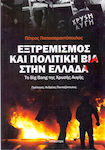
Political Books
Εξτρεμισμός και πολιτική βία στην Ελλάδα, Το Big Bang της Χρυσής Αυγής
from 10,40 €Added

Similar products
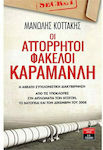

 Top rated
Top rated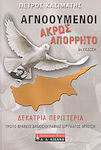
Political Books
Αγνοούμενοι: Άκρως απόρρητο, Δεκατρία περιστέρια: Οι τελευταίοι επιζώντες αγνοούμενοι της Κύπρου: Οι μυστικές αποστολές σωτηρίας τους
Ad from Xryso FteroAdded

Political Books
Στον αστερισμό του εθνικισμού, Αλβανία και Ελλάδα στη μετα-Χότζα εποχή
from 14,37 €Added Top rated
Top rated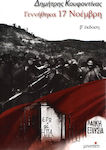

Political Books
Μεταπολίτευση 1974-1975 50 Ερωτήματα Και Απαντήσεις, 50 Questions and Answers
Ad from SelefaisAdded
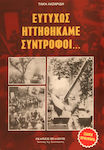

All shops
Prices are calculated for:Malta, Other Payment Options
- 11,81 €
- 12,72 €
- 12,72 €
Description
"Traverso backwards - heading north
Go forward - backward we - and do not worry."
Nikos Kavvadias, from the collection "Pousi", 1947
"Traverso" is a nautical term that means a course against the direction of the wind in order to avoid the ship being hit by waves on its sides. It is a course that ships take with all the power of their engines when any other course is dangerous.
"Political Traverso" is a collection of texts, from 1989 to 2010, which have as their common characteristic that they are in opposition to the ideas and opinions that prevailed in Greek society during the period of Late Metapolitefsi.
As Professor Giannis Voulgaris, who introduces the book, writes, "the political tradition in which the author is involved constitutes a different version of post-Metapolitefsi Greece, largely a lost opportunity in the past, but a hope for the future, for our country to emerge from the current impasse. In the present conjuncture, political traverso not only goes against the "late metapolitefsi", but against Greece of bankruptcy."
Petros Papasarantopoulos is categorical in his observations and criticism, as the reader will discover. Greek society moved within the ideological framework shaped by the triptych: extreme individualism and syndicalism - devaluation of work as a social value and its substitution with the logic of favoritism, mainly in the public sector - shifting of responsibilities to others, especially foreigners.
The experience of Thessaloniki plays a decisive role in Petros Papasarantopoulos' analysis. The book offers a chronology of the city's missed opportunities as well as those responsible for its decline, reminding us of how much Thessaloniki has paid for the devaluation of its political leadership and its "nationalistic-mad" individuals.
Giannis Voulgaris points out: "Petros Papasarantopoulos illustrates the dual perspective of the country by resorting to Janus. Greece, like another Janus, has two faces, "of conservatism and anachronism" on the one hand, and the democratic, rational, and outward-looking culture on the other. The national perspective depends on the confrontation of the two. However, the author intensifies it to the maximum: in periods of exacerbation, the two faces, the two Greeces, clash in terms of "cultural war" and not just a simple ideological-political confrontation".
Specifications
- Subtitle
- (1989 - 2010)
- Format
- Soft Cover
- Number of Pages
- 292
- Publication Date
- 2010
- Dimensions
- 21x14 cm
Important information
Specifications are collected from official manufacturer websites. Please verify the specifications before proceeding with your final purchase. If you notice any problem you can report it here.












































